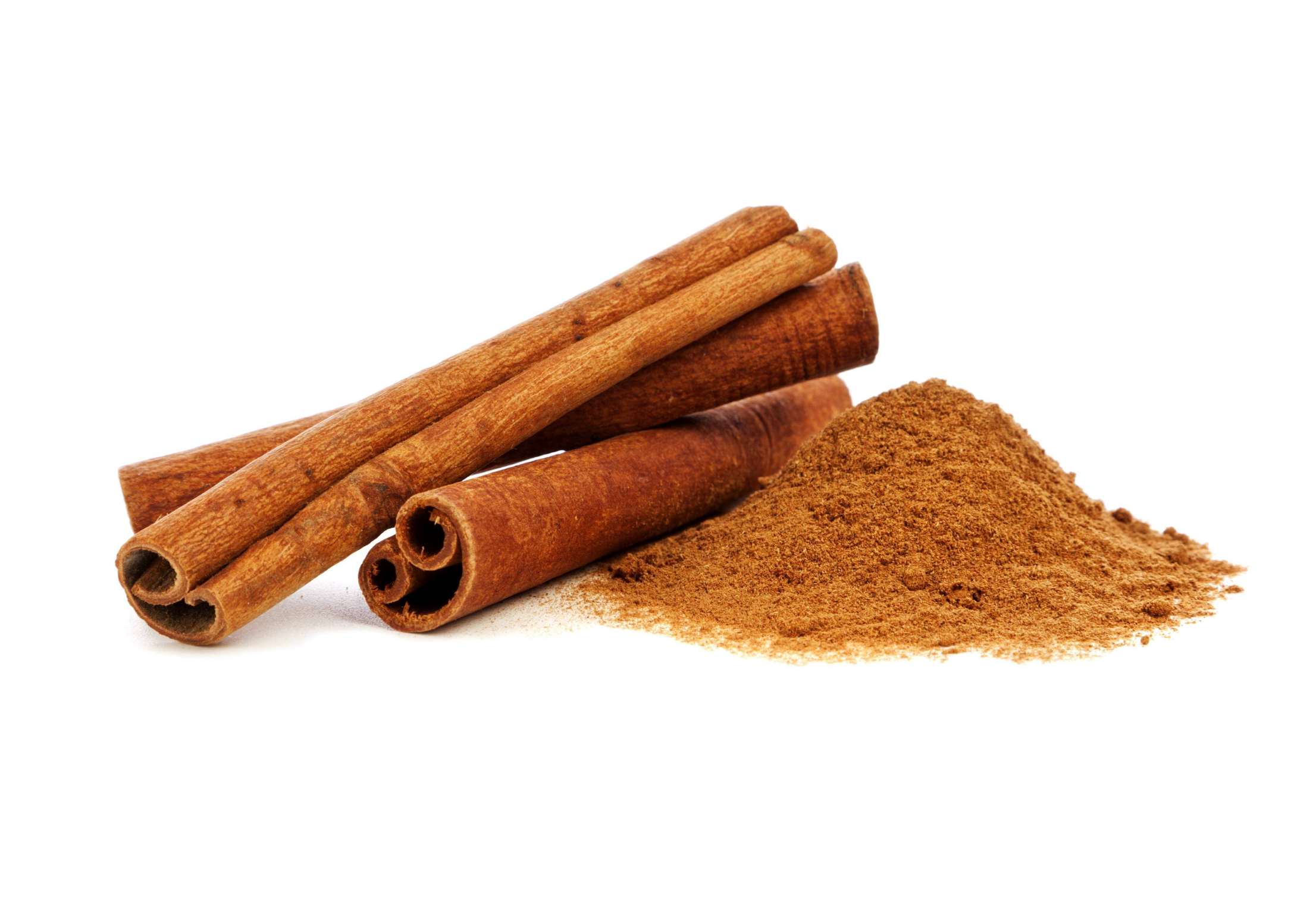CINNAMON
Cinnamon is a sweet-smelling spice with a gentle heat in its taste. It is the bark of cinnamon tree which is used in either the stick or powdered form to add flavor to cuisines around the world.
Cinnamon tea is a healthy beverage prepared from the cinnamon stick. It is naturally low in calories and is full of surprising benefits. Cinnamomum cassia is the most common and popular variety but there are a number of other species within the genus that can have similar effects when used as an herbal tea.
Cinnamaldehyde is the active ingredient in all cinnamon species, and this bioactive compound can have a number of beneficial effects on the body. This particular compound is complemented by coumarin, linalool, cinnamic acid, proanthocyanidins, catechins, and other powerful substances.
It is very easy to prepare and is a flavorful beverage which can be taken hot or cold. For maximum benefits, cinnamon tea should be taken in an empty stomach first thing in the morning, and then as you prefer throughout the day.
BENEFITS OF CINNAMON
Cinnamon is a secrete wonder that has been in use in traditional medicine in many regions of the world for millennia and whose benefits are just becoming known to the Western world. Some of these wonderful benefits include:
- Regulates blood sugar, thus helps manage diabetes
- Suppresses appetite
- Aids in weight loss
- Lowers cholesterol levels
- Boosts immune system
- Its high antioxidant levels prevent chronic diseases
- Improves digestion
- Boosts brain function; in older generations, cinnamon is known to improve cognitive speed, boost concentration and focus, and even stimulate the growth of new neural pathways; thus, making it an important herbal strategy for the treatment of Alzheimer’s and other degenerative neural conditions.
- Reduces inflammation
- Treats menstrual cramps
- Regulates irregular menstruation
- Fights common cold and flu
WORD OF CAUTION
- Excess intake of cinnamon tea can be strenuous for the liver, and can even cause liver failure. This is due to the presence of an active ingredient called coumarin. While most varieties of cinnamon have safe levels, excessive consumption of Cassia, Saigon, and Korintje cinnamon varieties can be dangerous. That being said, 2 to 3 cups of cinnamon tea each day are safe and will not pose a threat to your liver health.
- Pregnant women should avoid consuming cinnamon. It stimulates blood flow and can cause uterus to contract. Similarly, nursing mothers should avoid cinnamon tea because it can develop allergies in the baby.
- Cinnamon is ‘hot’ in its nature and may induce sweating and hot flashes, especially among menopausalwomen. If you experience these symptoms, there is no need to panic, just reduce the quantity of cinnamon tea and discontinue its use for a few days.
- If you have ulcers of the stomach or intestine, consuming cinnamon can irritate it further.
- Cinnamon can slightly increase your heart rate. People with known heart conditions should avoid drinking cinnamon tea.
- Cinnamon is a natural antibiotic and its properties can interfere with other medications work and cause unpredictable side effects. It should be avoided any time you are taking a regular prescription antibiotic.
HOW TO BREW A PERFECT CUP OF CINNAMON TEA
You can make cinnamon tea from whole cinnamon sticks, as well as broken pieces of cinnamon and ground cinnamon.
Ingredients
- 1 whole stick / 1 tablespoon of broken pieces / 1 teaspoon of ground cinnamon
- 1 cup of water
Method
- Boil 1 cup of water with cinnamon in it.
- Let the tea come to a full boil for 2 minutes and then turn off the heat.
- Steep it for 10 minutes if whole stick; 5 minutes if it is broken piece and 2 minutes if it is ground.
- Add honey for added benefit and flavor.
- Enjoy!

